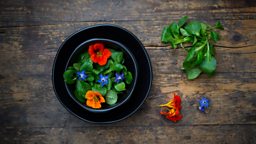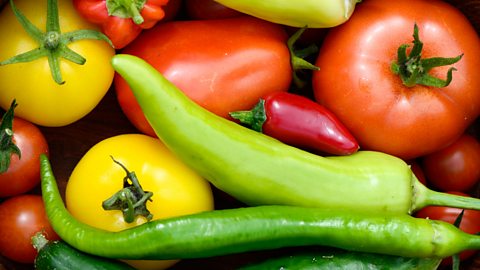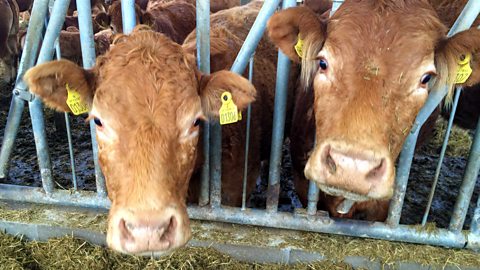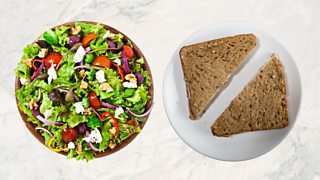Seven things you didn't know about organic food
the world of organic food and has drawn together seven surprising facts.
From dancing cows to the debate about health benefits, it makes for a fascinating read.

1. Experts can't agree if it's better for you or not
There's disagreement amongst nutritionists and academics. Public Health England says the 'balance of current scientific evidence' does not support the idea that organic fruit, vegetables and meat are more nutritious. But academics at Newcastle University say they've proven organic food has a different nutritional make-up, for example it has more anti-oxidants. Critics say they've found small variances - and that it's not an indication it would be better for us to eat.

Are there any benefits to eating organic?
The scientific research behind the health benefits of organic food.
2. 1.4% of the UK's food and drink is organic
The organic sector accounts for 1.4 percent of the UK's multi-billion pound food and drink market, according to the National Farmers Union. At the moment a lot of the organic food grown in this Country is imported - so the NFU says this could represent an opportunity for UK producers to grow more.
3. It takes two years to convert to an organic farm
Farmers must register with an organic certification body if they want to sell organic products. It then has to be inspected. The conversion process takes around two years, depending on the type of land and crops being grown. Government grants are available for those who want to do it.
4. Prices are high: organic milk can be 70% more expensive
The UK organic market has been growing for the past five years, according to the Soil Association. It says total sales of organic products increased by 7.1% in 2016 while non-organic sales declined. That's despite higher prices for organic food. Arla, one of the world's largest dairies, says its organic milk on sale in the UK can cost up to 70 percent more than their other milk.
5. Organic food is more popular in Denmark than anywhere else in the world
Half the Danish population buy organic products at least once and a week and it accounts for 8.4% of all food and drink sales there.
In Denmark eating Organic is considered 'folkeligt' the word describes something which people feel proud of or part of.
6. Denmark has a special holiday for organic cows to 'dance' outside
On the third Sunday of April, rural Denmark comes to a standstill to celebrate National Organic Day. This is the date when Denmark's 60,000 organic cows are let out of their barns for summer to graze on grass - an event so exciting that the creatures are said to run, leap, buck and even "dance" with joy.

What can the UK learn from Denmark?
Half the Danish population buy organic products at least once a week.
7. But it could make you feel good anyway...
A few years ago scientists at Abertay University carried out a study which suggested organic and fair trade food may taste subjectively better and that it delivers greater 'moral satisfaction'. Basically people were given different foods and told some were ethical and some weren't - and they said the ethical stuff tasted better. But they did have to value ethical food production - if they didn't care, the effect wasn't the same.
-
![]()
You & Yours sets out to investigate organic food.
-
![]()
Some chores should be done daily, while others can wait up to six months!
-
![]()
The majority of us have exactly the same lunch every day.
-
![]()
We have squeezed out some astonishing citrus facts.




